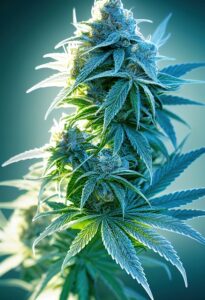
Cannabidiolic acid (THCA), a non-psychoactive cannabinoid with potential health benefits such as anti-inflammatory and analgesic properties, is becoming increasingly recognized within the EU's therapeutic cannabis domain. With the evolving legal landscape, THCA-rich hemp flowers are legally accessible in many EU countries under the European Industrial Hemp Association (EIHA) guidelines, which regulate THC content at 0.2% or below on a dry weight basis, distinguishing it from its psychoactive counterpart THC. The EU's regulatory framework is evolving to clarify the legal status of THCA, with countries like Italy, Germany, and the Netherlands leading the way in legalizing its use under specific conditions. Researchers are investigating THCA's therapeutic potential as an alternative to psychoactive cannabis, with the EU's regulatory oversight becoming more progressive. The legality of THCA varies across EU countries, influenced by the potential conversion to THC post-decarboxylation, necessitating a detailed understanding of local laws and cannabinoid chemistry for compliance with evolving regulations. As scientific research advances, the use of THCA for its natural therapeutic advantages is expected to expand within a regulated framework, providing opportunities for individuals to explore its benefits legally across various EU member states. Cultivators must adhere to strict guidelines to maintain the integrity and legality of THCA flowers, ensuring quality and safety for consumers.
Explore the multifaceted world of THCA flower, a non-psychoactive precursor to THC found in the cannabis plant. This article delves into the unique properties and burgeoning recognition of THCA as a prominent cannabinoid. As regulations evolve across European Union countries, understanding the legal status of THCA becomes increasingly important for consumers and producers alike. From its chemical structure that sets it apart to the potential medical and therapeutic benefits it offers, this comprehensive guide will shed light on the cultivation, processing, and best practices to ensure both quality and legality of THCA flower. Join us as we uncover the potential of this cannabinoid within the legal landscape of the EU.
- Unraveling THCA Flower: A Comprehensive Overview
- The Emergence of THCA as a Prominent Cannabinoid
- THCA Legal Status Across EU Countries: Navigating the Landscape
- Chemical Structure and Properties of THCA: What Sets It Apart?
- Medical and Therapeutic Benefits of THCA Flower Use
- Cultivation and Processing of THCA Flowers: Best Practices for Quality and Legality
Unraveling THCA Flower: A Comprehensive Overview
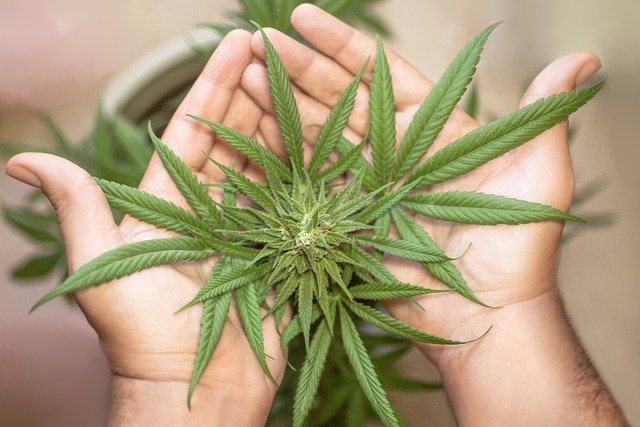
Cannabidiolic acid (THCA) is a non-psychoactive compound found in the cannabis plant that has garnered significant attention due to its potential therapeutic properties. As legislation evolves, THCA-rich hemp flowers have become legally accessible across various EU countries, opening up new avenues for research and consumer use. In these regions, the legal landscape regarding THCA flowers is defined by the stringent requirements set forth in the European Industrial Hemp Association (EIHA) guidelines, which cap the THC content at 0.2% on a dry weight basis to distinguish it from its psychoactive counterpart, THC.
The THCA molecule, abundant in raw cannabis flowers before decarboxylation, has been found to possess a range of benefits including anti-inflammatory, neuroprotective, and analgesic effects. These potential wellness attributes have sparked a surge in interest among consumers seeking natural alternatives for health and well-being. When exploring THCA flower within the legal parameters set by EU countries, it’s crucial to understand the cultivation, processing, and extraction methods that preserve the integrity of THCA. Consumers interested in these products should prioritize purchasing from reputable sources that provide third-party lab test results confirming the THCA content and the absence of unwanted contaminants or excessive THC levels. This due diligence ensures a safe and effective experience with THCA flowers, which continue to be a subject of growing interest in the holistic health community within the EU.
The Emergence of THCA as a Prominent Cannabinoid
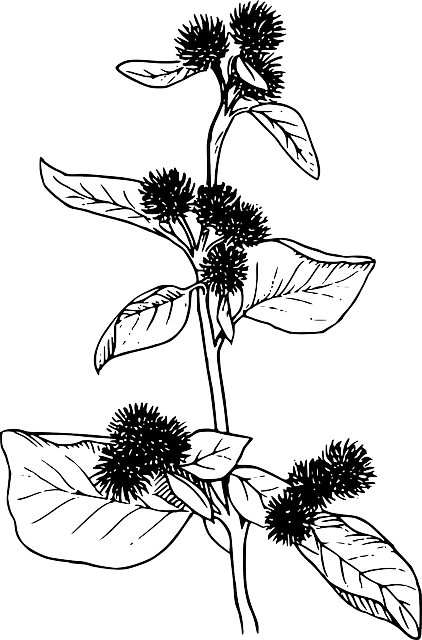
betting on the therapeutic potential of cannabinoids, researchers and consumers alike have turned their attention to THCA or Tetrahydrocannabinolic Acid, the raw form of THC found in cannabis flowers. Unlike its psychoactive counterpart, THC, THCA is non-psychoactive, offering a spectrum of benefits without the intoxicating effects. As regulations evolve and scientific understanding deepens, THCA has emerged as a prominent cannabinoid with a growing body of research supporting its use for various conditions.
The legal landscape of THCA within the European Union is a complex tapestry that varies by country. In some EU nations, THCA-rich products are fully legal, provided they comply with the stringent regulations governing cannabis derivatives. These regulations dictate factors such as THC concentration and labeling requirements. Countries like Italy, Germany, and the Netherlands have pioneered the cultivation, research, and sale of THCA products, reflecting a progressive stance on the potential benefits of this cannabinoid. As EU countries navigate these emerging markets, they are increasingly recognizing the value of THCA as a component in wellness and therapeutic regimens, paving the way for further exploration into its applications. This shift not only reflects a regulatory evolution but also underscores the growing public interest in cannabinoid therapy.
THCA Legal Status Across EU Countries: Navigating the Landscape

THCA, or Tetrahydrocannabinolic Acid, is one of the many cannabinoids found in the Cannabis sativa plant and its legality across European Union countries varies. As of the current regulatory framework within the EU, THCA exists in a legal grey area due to differing interpretations of the European Court of Justice’s guidelines on hemp-derived products. In some EU nations, THCA is legally permissible under certain conditions, particularly when it is extracted from hemp varieties that contain less than 0.2% THC by weight. However, this threshold can be subject to interpretation and enforcement at both national and regional levels within the EU. Countries like Germany, Italy, and the Netherlands have established their own regulations that align with or diverge from the EU’s broader stance, leading to a patchwork of legal statuses for THCA products across the continent. It is crucial for individuals and businesses dealing with THCA to be well-versed in the specific laws of the particular EU country they operate in or intend to distribute products to. This intricate landscape of regulations underscores the importance of staying informed about the evolving legal environment surrounding THCA within the European Union.
Chemical Structure and Properties of THCA: What Sets It Apart?
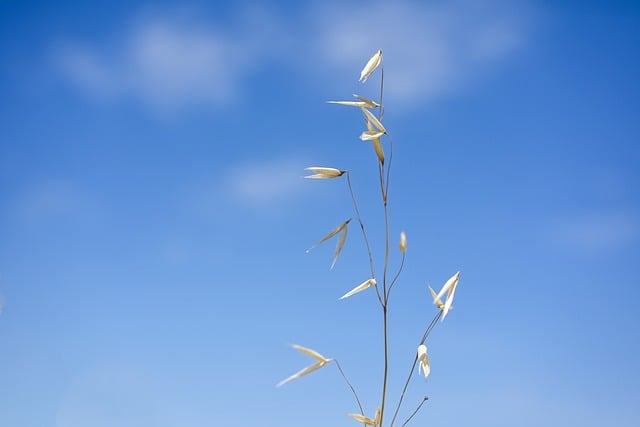
Delta-9-tetrahydrocannabinolic acid (THCA) is a naturally occurring cannabinoid found in the Cannabis sativa plant, which exists abundantly in raw and uncured cannabis flowers. Unlike its well-known isomer, delta-9-tetrahydrocannabinol (THC), THCA possesses a unique chemical structure that imparts distinct properties. The THCA molecule features a cyclic ring structure with an acidic carboxylic group (COOH) at the R position, which is responsible for its inert nature in terms of psychoactive effects when the plant material is raw. This structural difference means that THCA must undergo decarboxylation—a process of heating it to convert THCA into THC—to exhibit psychoactive properties.
As of my knowledge cutoff in 2023, THCA’s legal status varies across EU countries. In some regions, THCA is considered a legal substance as it is an acidic precursor to THC, which is often what is regulated under cannabis laws. However, the legality of THCA can be complex due to its potential to convert into THC, the psychoactive compound that is typically controlled by legislation. It’s crucial for individuals to be aware of the specific laws within their jurisdiction as they can differ significantly. In the context of EU legal frameworks, THCA’s status is often determined by the level of THC it may eventually become upon decarboxylation, reflecting a nuanced understanding of cannabinoid chemistry within regulatory frameworks. Understanding the intricacies of THCA’s chemical structure and its implications under law is essential for anyone involved in the cultivation, production, or consumption of cannabis products in EU countries.
Medical and Therapeutic Benefits of THCA Flower Use
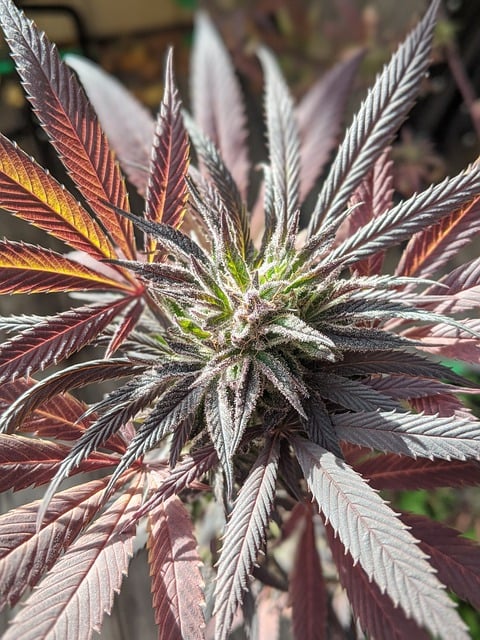
delta-9-tetrahydrocannabinolic acid (THCA) flower, found in hemp and cannabis plants, has garnered attention for its potential medical and therapeutic benefits. THCA is the non-psychoactive precursor to the more well-known psychoactive compound delta-9-tetrahydrocannabinol (THC). As such, THCA flower offers a range of health advantages without the psychotropic effects. In the European Union, where laws regarding cannabis are complex and vary by country, THCA-rich hemp flowers that contain less than 0.2% delta-9-THC are legal under the EU’s Novel Food Regulation. Research indicates that THCA may provide therapeutic benefits including anti-inflammatory, analgesic, and neuroprotective effects. It is believed to support the immune system, alleviate pain, and offer potential in treating nausea and loss of appetite, which can be particularly beneficial for patients undergoing chemotherapy. Additionally, studies suggest that THCA may have antiemetic properties, making it a promising option for those seeking alternatives to traditional medications with fewer side effects. The legality of THCA flower in EU countries provides an avenue for individuals to explore its potential health benefits within a legal framework. As scientific research continues to evolve, the understanding and utilization of THCA’s properties are likely to expand, offering new possibilities for natural therapeutic support.
Cultivation and Processing of THCA Flowers: Best Practices for Quality and Legality

In the realm of cannabinoid-rich botanicals, THCA (Tetrahydrocannabinolic Acid) flowers have garnered significant attention due to their potential therapeutic properties and legal status in various regions. The cultivation of these flowers must adhere to stringent quality controls and comply with the legislative framework governing cannabis in the European Union. EU countries have distinct regulations regarding the cultivation, processing, and distribution of THCA-rich plants; thus, growers must stay informed about the specific laws applicable in their respective jurisdictions.
Cultivating THCA flowers demands a meticulous approach, from strain selection to harvesting. Growers should select high-quality genetics with a proven track record of producing potent THCA content. Environmental factors such as temperature, humidity, and light are crucial in maintaining the integrity of the THCA crystals, which contain the acidic form of THC. Processing these flowers involves careful handling to preserve the natural THCA. Drying and curing must be executed with precision to prevent the conversion of THCA into THC or CBN. This preserves the raw cannabinoid in its most stable and legal form, aligning with EU regulations that may vary from country to country. Compliance with these regulations is not only a matter of legality but also ensures the quality and safety of the final product for consumers. Growers and processors must navigate this complex landscape with due diligence to provide high-quality THCA flowers within the legal confines set forth by EU member states.
In recent times, THCA flower has emerged as a subject of significant scientific and medical interest, particularly within the cannabinoid landscape. This article has peeled back the layers surrounding this compound, exploring its origins, legal status across various European Union countries, and the intricate details of its chemical structure and potential therapeutic effects. As the understanding of THCA’s properties continues to expand, so too does its acceptance and regulation in the EU. Cultivators and processors alike are refining their techniques to ensure that consumers receive high-quality, legally compliant THCA flower, paving the way for further research and exploration into its myriad benefits. The discourse on THCA legal status within the EU is a testament to the evolving nature of cannabinoid research and regulation, signaling a promising future for this cannabinoid’s role in health and wellness.
